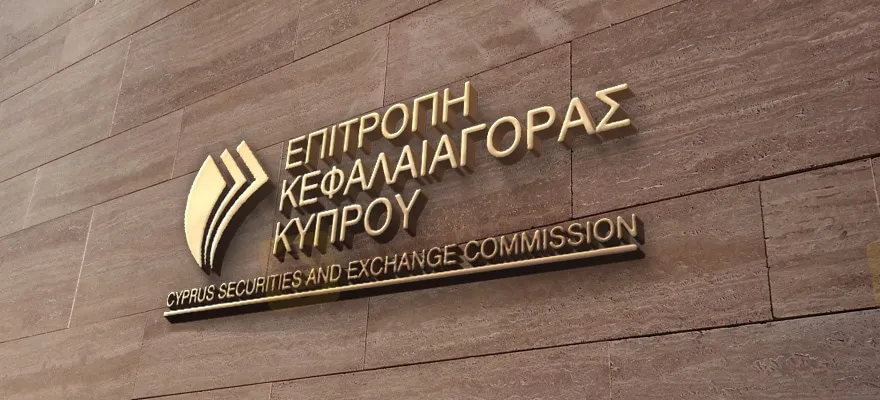简体中文
繁體中文
English
Pусский
日本語
ภาษาไทย
Tiếng Việt
Bahasa Indonesia
Español
हिन्दी
Filippiiniläinen
Français
Deutsch
Português
Türkçe
한국어
العربية
The CySEC Cracks Down On More Trading Brands
Abstract:The Cyprus Securities and Exchange Commission (CySEC) has withdrawn its Investors Compensation Fund (ICF) membership for three entities: London Capital Group (Cyprus) Ltd, Daweda Exchange Ltd and Felicitas Management Investment Services Ltd.
The Cyprus Securities and Exchange Commission (CySEC) has withdrawn its Investors Compensation Fund (ICF) membership for three entities: London Capital Group (Cyprus) Ltd, Daweda Exchange Ltd and Felicitas Management Investment Services Ltd. Fortunately, existing clients will still be entitled to compensation.

Non-Compliance
Each of these firms has had its Cyprus Investment Firm (CIF) license removed in recent years. The removal of the ICF membership is a result of these companies losing their CIF status.
Daweda had its CIF license revoked in 2020 following accusations that it onboarded customers from the European Union under an offshore entity based in the British Virgin Islands. The firm failed to adequately notify the CySEC.
The London Capital Group is currently going through a liquidation process in the UK. The EU regulator levelled several accusations at the company, including violations of compulsory compliance requirements. This led to the EU regulator withdrawing the firms CIF license.
The CySEC commented: “The loss of ICF membership status does not mean the loss of rights of covered clients to receive compensation in relation to investment operations carried out until the loss of membership status if the conditions for compensation are fulfilled pursuant to the Directive, nor does it obstruct the initiation of the compensation procedure for covered clients”.
It has been a busy few months for the EUs top financial regulator, with the CySEC revoking the licenses of several other trading brands too, including Belight Capital Group, SonaFX Operator and Sonaf Business.
Investor Compensation Fund
Members of the Investor Compensation Fund receive protection of up to €20,000 for each of their clients. It is designed to cover retail investors in the event that a broker cannot meet its financial obligations, for example, it goes bankrupt. It provides an important layer of security and peace of mind for retail traders.
Trading With Regulated Firms
Online brokers are coming under increasing scrutiny from financial watchdogs like the CySEC. This is good news for traders with rogue operators now facing expulsion from important schemes like the ICF.
We always recommend signing up with a licensed and reputable provider. This typically means opening an account with a firm authorized by a top-tier agency like the UKs Financial Conduct Authority (FCA), the Australian Securities & Investments Commission (ASIC), or the Cyprus Securities & Exchange Commission (CySEC). It is best to steer clear of companies holding offshore licenses as traders may not get the same level of protection should the firm, or traders themselves, encounter issues.
Disclaimer:
The views in this article only represent the author's personal views, and do not constitute investment advice on this platform. This platform does not guarantee the accuracy, completeness and timeliness of the information in the article, and will not be liable for any loss caused by the use of or reliance on the information in the article.
Read more

The Daily Habits of a Profitable Trader
Every professional trader follows a structured approach to ensure they are well-prepared, disciplined, and able to seize opportunities with confidence. Whether you are a seasoned investor or an aspiring trader, adhering to a robust daily checklist can significantly enhance your performance. Use this checklist to check if you are a qualified trader

The Impact of Interest Rate Decisions on the Forex Market
Interest rate changes determine currency attractiveness, influencing capital flows and exchange rate trends. Understanding this mechanism helps investors navigate the forex market effectively.

How a Housewife Lost RM288,235 in a Facebook Investment Scam
A 47-year-old housewife in Malaysia recently fell victim to an online investment scam, losing a substantial sum of RM288,235 after engaging with a fraudulent scheme advertised on Facebook.

A Trader’s Worst Mistake: Overlooking Broker Reviews Could Cost You Everything
In today’s digital age, reviews influence nearly every decision we make. When purchasing a smartphone, television, or home appliance, we pore over customer feedback and expert opinions to ensure we’re making the right choice. So why is it that, when it comes to choosing an online broker where real money and financial security are at stake many traders neglect the crucial step of reading reviews?
WikiFX Broker
Latest News
TradingView Brings Live Market Charts to Telegram Users with New Mini App
Trump tariffs: How will India navigate a world on the brink of a trade war?
Interactive Brokers Launches Forecast Contracts in Canada for Market Predictions
Authorities Alert: MAS Impersonation Scam Hits Singapore
Stocks fall again as Trump tariff jitters continue
INFINOX Partners with Acelerador Racing for Porsche Cup Brazil 2025
Regulatory Failures Lead to $150,000 Fine for Thurston Springer
April Forex Trends: EUR/USD, GBP/USD, USD/JPY, AUD/USD, USD/CAD Insights
March Oil Production Declines: How Is the Market Reacting?
Georgia Man Charged in Danbury Kidnapping and Crypto Extortion Plot
Currency Calculator







